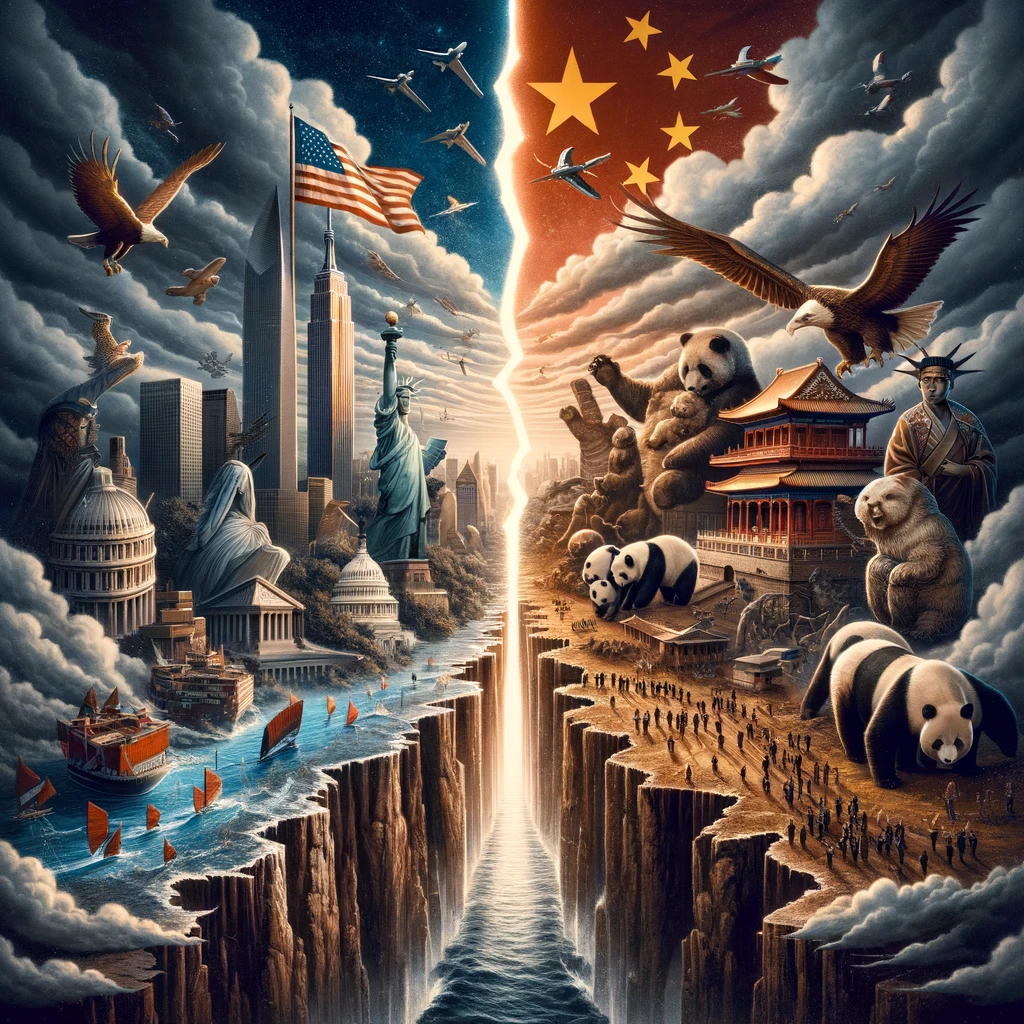The U.S. and China are like the oldest couple in the world, to be honest. And they have one of the most toxic, twisted relationships ever. Yeah I am sure we all know our history, so let’s fast forward to 2022, when Joe Biden decided to start a little experiment of some sort seemingly out of the blue. My guy woke up one random morning and thought, “Hmm, what a beautiful day! Perfect time for America to dump her long-term girlfriend for good.”
You see, the man wanted U.S. to decouple from China’s technological and military advancements permanently by cutting off access to high-end semiconductors. Clearly, this has sparked a significant debate. Everyone thinks… everything, but the question still stands: Can the world’s oldest couple actually afford to split? And IF they do, would we – citizens of world – survive the break up? Keep in mind that this isn’t just a question of policy but one that touches on the survival instincts of global economic systems.
Biden’s strategy: Restrict, ban, repeat
Before Biden’s dementia got as bad as it is right now, he was actively plotting, and in this plot lies a paradox. a tight focus on preventing China’s access to dual-use technology, presumably a minuscule portion of the semiconductor industry, known as a “small yard, high fence” approach. However, the simplicity of this goal conceals the complexities of global supply networks, in which every action results in a slew of unintended consequences.
For example, the United States’ limitations have unwittingly accelerated China’s own semiconductor research efforts. It’s a classic example of what you oppose, persists. China’s talent for technical duplication and innovation should not be underestimated, as proven by its advances in electric cars, solar panels, and, perhaps, high-end transistors. U.S. top semiconductor are keeping an eye on their backs, fearful that their Chinese competitors may not only catch up, but overtake them sooner than expected. This is now a race against time, with China’s SMIC closing the technological gap quicker than anybody thought. Honestly, I’m impressed.
The global chain reaction
You might be confused as to what effect exactly this decoupling attempts have had on both countries’ economies, and to that I say:- U.S. trade deficit with China has shrunk to its lowest in a decade. Still, let be real with you guys, this separation is more illusion than reality, because right now, Xi and Biden have got themselves intertwined in a complex web of global manufacturing and trade. The tariffs imposed by Donald Trump have become a blunt instrument in a world that requires an insane amount of precision. The adaptability of global markets means that production simply shifts, with Vietnam and Mexico becoming alternative manufacturing hubs, albeit still heavily reliant on Chinese inputs.
US’s tactics go beyond tariffs and trade imbalances. This is actually a massive reorganization of global supply systems. China’s answer, a combination of increased local capabilities and smart industry relocation, suggests a future in which US bans may become increasingly unsustainable. This brings up my question AGAIN: Is a total break between the United States and China realistic, or even wanted? Like, does the global economy need this right now? The answer, in case you haven’t got it by now, is NO. We don’t need it. But we might be able to survive it.
So as supply chains evolve and governments adjust to the changing geopolitical environment, the question remains whether these changes will result in a more diverse global economy or a fragmented one characterized by inefficiencies and missed opportunities. The efforts of companies such as Apple and Samsung to expand their manufacturing bases, as well as Chinese companies’ diversification into countries with suitable commercial ties with the United States, highlight the dynamic nature of global trade and the difficulty of disentangle deeply interconnected economic relationships.





